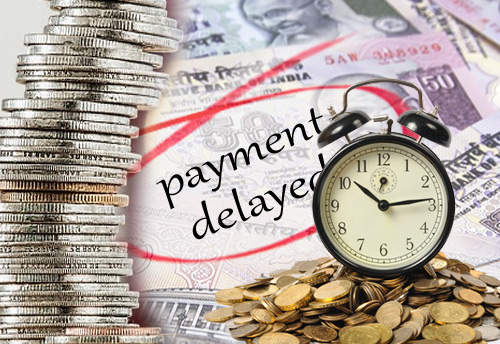Ensuring prompt payment of the amount indicated on your bill by the due date is crucial.
Once you miss a student loan payment, your loan becomes delinquent, meaning it is past due. Your loan account remains delinquent until you settle the overdue amount or make alternative arrangements, such as deferment, forbearance, or changing repayment plans.
If your student loan payment remains delinquent for 90 days or more, your loan servicer will report the delinquency to the three major national credit bureaus. Persistent neglect can lead to loan default, a situation you should not ignore due to its serious consequences. To learn more about avoiding default, seek information on effective strategies.
More: Prioritizing Student Loan Repayment vs. Investing: A Financial Assessment
Note: The term “consumer reporting agencies” may refer to credit bureaus in the promissory message you signed before obtaining your loan.
A poor credit rating can hinder your ability to acquire various forms of consumer credit, including credit cards, home or car loans, and other financing options. Additionally, individuals with a low credit score may be subject to higher interest rates than those with good credit ratings.
Furthermore, you might encounter difficulties when attempting to set up utilities, obtain homeowner’s insurance, secure a cell phone plan, or get approval to rent an apartment, as renters typically undergo credit checks.
More: Managing Student Loan Debt: Understanding Your Options
Understanding Loan Default
If your loan remains delinquent, it may eventually enter default status. The specific duration after which a loan is considered in default varies depending on the type of loan you received.
Under the William D. Ford Federal Direct Loan Program or the Federal Family Education Loan Program, your loan is considered in default if you fail to make your scheduled student loan payments for at least 270 days.
For loans obtained through the Federal Perkins Loan Program, the loan holder can declare your loan in default if you miss the scheduled payment deadline. To gather information about your Perkins Loan, find out where to seek assistance.
If you default on any of your federal student loans, contacting the organization that promptly informed you about the default is essential. By explaining your situation comprehensively and exploring available options, you may be able to resolve the default swiftly. Learn more about the process of exiting default.
More: Student Loan Forbearance Extension: What You Need to Know
More: Deferment vs. Forbearance: Understanding the Difference for Student Loans
Consequences of Default
Defaulting your loan can have wide-ranging consequences, impacting your borrowing capabilities and financial well-being. The consequences include:
- The entire outstanding balance of your loan, including any accrued interest, becomes immediately due (known as “acceleration”).
- You lose the opportunity to receive deferment or forbearance and become ineligible for other benefits, such as choosing a repayment plan.
- You become ineligible for additional federal student aid.
- The default is reported to credit bureaus, significantly harming your credit rating and affecting your ability to secure a car loan, mortgage, or credit card.
- It may take several years to rebuild a positive credit history.
- You may encounter difficulties in purchasing or selling assets, such as real estate.
- Tax refunds and federal benefit payments might be withheld and directed towards loan repayment (“Treasury offset”).
- Your wages may be garnished, and your employer must withhold a portion of your pay to repay your defaulted loan.
- Your loan holder may take legal action against you.
- You may incur court costs, collection fees, attorney’s fees, and other expenses associated with the collection process.
More: Consequences of Not Paying Student Loans: Understanding the Impact and Seeking Assistance
If your school withholds your official transcript, you can request an unofficial transcript that another educational institution could accept. If you encounter difficulties obtaining your transcript, you can file a complaint with the Consumer Financial Protection Bureau.
Seek Assistance from Your Loan Servicer
If you are experiencing payment difficulties or have concerns about the status of your federal student loan(s), it’s essential to know that your loan servicer can provide valuable assistance and guidance.
Reach out to your loan servicer to discuss how you can get back on track with your payments. They can provide you with information on various affordable repayment options that may be available to you. These options can help you continue making loan payments even during challenging times.
Your loan servicer can offer valuable advice on potential solutions such as income-driven repayment plans, which base your monthly payments on your income and family size. They can also provide information on deferment or forbearance options if you face temporary financial hardship.
More: Federal Student Loan Servicers: Your Guide to Repayment and Assistance
Additionally, your loan servicer can guide you through exploring loan consolidation or refinancing options, which can help simplify your repayment and potentially reduce your interest rates.
Remember, communication with your loan servicer is crucial. By proactively contacting them and discussing your situation, you can work together to find a solution that best fits your needs and helps you avoid delinquency or default.
Stay proactive in managing your student loans and utilize the available resources and assistance. By staying informed and engaged, you can maintain a solid financial standing and pave the way for a successful repayment journey.















